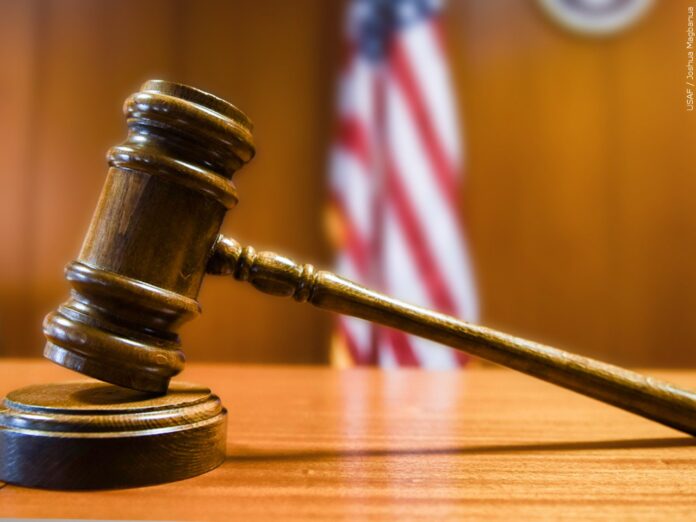McALLEN — The federal trial against two men accused of defrauding the city of Weslaco out of millions during the rehabilitation of the city’s water treatment plants is finally set to begin next week, more than three years after a lengthy indictment against them was unsealed.
But before former Hidalgo County commissioner Arturo “A.C.” Cuellar and Weslaco businessman Ricardo “Rick” Quintanilla could have their day in court, both their defense attorneys and federal prosecutors had a few last-minute housekeeping matters to straighten out first.
As such, the two sides met before U.S. District Judge Micaela Alvarez Friday morning to hammer out the last remaining questions before jury selection gets underway next Tuesday.
The majority of the questions that remained revolved around whether the government would be calling any so-called “expert” witnesses, and whether the defense’s own expert would provide testimony relevant to the case at all.
Federal prosecutors plan to call a bevy of what are called “fact witnesses” to the stand — people who can offer testimony regarding their own personal experience of events surrounding the eight-year span of the alleged scheme.
Among them are former Weslaco City Secretary Elizabeth Walker, and Juan Gonzales, who was — and still remains — the Weslaco city attorney.
It is expected that prosecutors will also call former city officials who have been implicated in the bribery scheme but have since pleaded guilty.
An expert witness differs from a fact witness through the extensive knowledge and experience they have in a given subject matter. Their expertise on a particular topic or issue allows them to give testimony that goes beyond mere recollection of events, but to offer an informed opinion on an issue.
As things stand now, however, the government has no plan to call witnesses to offer expert opinions — at least in regard to infrastructure engineering.
In court on Friday, the defense balked at that, saying that a trial involving a highly technical project, such as the building of water and wastewater treatment facilities, must surely involve some testimony from someone with relevant expertise.
“They have to tie in the quid pro quo,” said Jaime Peña, the McAllen attorney representing Quintanilla.
“Our clients were somehow paid (to vote) a certain way… how do we get into the process of the votes? … How do we get into the intricacies of that?” Peña said.
The defense attorney claimed that an engineering expert is necessary to help parse through the voting process by which the commission allegedly approved engineering and construction contracts with numerous firms.
They proposed allowing a man named John Shaw to provide such engineering expertise in order to rebut some of the government’s claims.
But prosecutors argued that an understanding of engineering has no bearing on the finer points of how public meetings operate.
“What he’s talking about is the procedure for city meetings,” said Marco A. Palmieri, a trial attorney with the Justice Department’s Public Integrity Section.
Nor was the judge persuaded by the defense’s arguments, saying that Shaw’s proposed testimony isn’t relevant to the case at hand — whether the defendants accepted or paid bribes to sway actions taken by public officials.
“If a council member was paid a bribe to change his vote, it doesn’t matter if they were the best engineering reports in the world,” Alvarez said.
The defense also raised a few questions about another expert that is expected to testify — forensic accountant Robin Gray.
Prosecutors served Gray with a subpoena that requires her to produce certain documents at trial. Peña alleged that the subpoena was an attempt by the government to circumvent the Federal Rules of Criminal Procedure regarding the procurement of evidence.
But again, the judge disagreed.
Finally, the judge ruled that the government must not mention Daniel J. Garcia, who in 2019 had been named in the 74-count superseding indictment along with Quintanilla and Cuellar, but for whom all charges have since been dismissed.
Another man — former Weslaco city commissioner John Cuellar — cousin to A.C. Cuellar — was also named in the indictment, but has since pleaded guilty and awaits sentencing.
Nor can prosecutors mention the Weslaco Motel 6, which stands at the center of similar bribery scheme allegations.
In that case, Quintanilla is accused of participating in a pay-to-play scheme with McAllen hotelier Sunil Wadhwani.
In May 2020, Wadhwani pleaded guilty to paying bribes in exchange for favorable votes from the Economic Development Corporation of Weslaco for a $300,000 economic incentive to build the motel.
He has yet to be sentenced.
Jury selection in the water plant bribery case is set to begin at 9 a.m. Tuesday. Some 50 potential jurors have been summoned to the selection process, Alvarez said.




